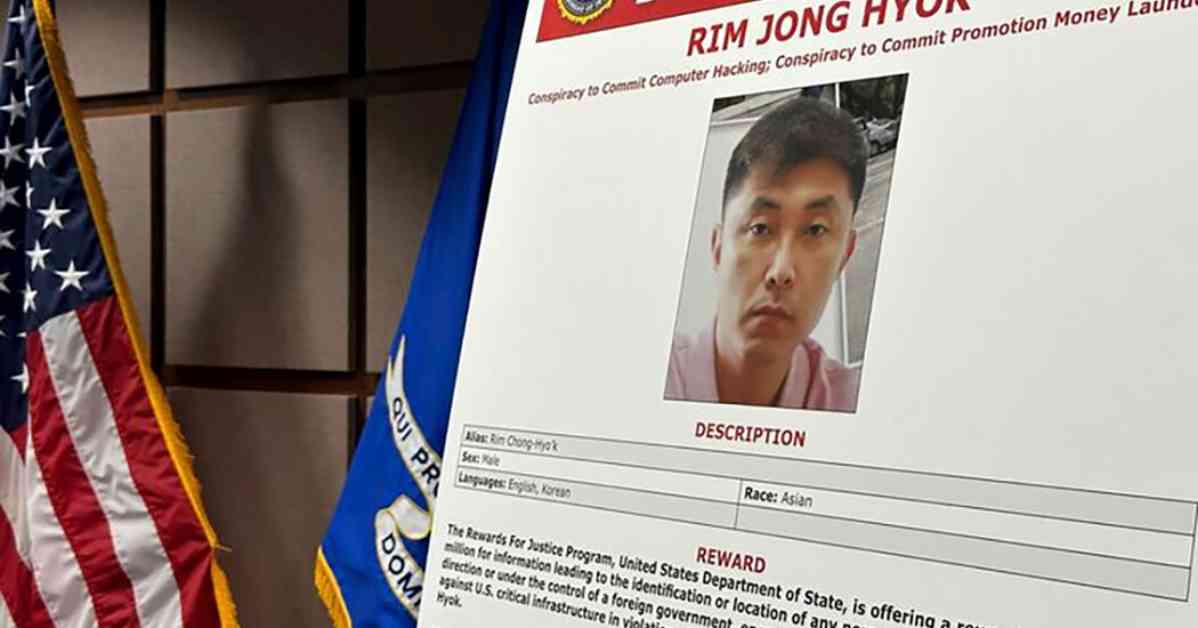Federal prosecutors have recently announced the indictment of a North Korean national, Rim Jong Hyok, for his involvement in a conspiracy to hack into hospitals, military bases, and NASA. This indictment sheds light on North Korea’s capabilities in malicious cybercrime and espionage.
Rim Jong Hyok, along with his unnamed co-conspirators, is accused of stealing a significant amount of data from American military bases, defense contractors, and even NASA, as well as several companies in Asia. The indictment reveals that they targeted four American defense contractors, Randolph Air Force Base, and Robins Air Force Base in the United States, as well as NASA’s inspector general office. It is reported that the North Koreans were able to extract technical data related to uranium processing, military aircraft, shipbuilding, and satellites from these entities.
What makes this case particularly concerning is the fact that Rim and his collaborators funded their espionage activities through ransomware attacks on American hospitals and healthcare companies. This strategy is commonly employed by North Korea’s cyber operatives to sustain their malicious activities.
In addition to targeting American entities, the indictment also mentions that the hackers infiltrated the computer systems of defense companies in South Korea, Taiwan, and even an energy company in China. The stolen data from South Korean and Taiwanese companies included technical and design information about military weapons and vehicles such as tanks, fighter jets, rockets, and torpedoes.
The release of this indictment coincided with a public advisory issued by the National Security Agency, the Federal Bureau of Investigation, and other U.S. and foreign agencies. The advisory warned about North Korea’s main intelligence service engaging in cyber operations to support the country’s military and nuclear programs.
This case highlights the increasing threat posed by state-sponsored cyberattacks and espionage activities. It underscores the need for robust cybersecurity measures to protect sensitive data and infrastructure from such malicious actors. As technology continues to advance, it is crucial for governments and organizations to remain vigilant and proactive in defending against cyber threats.
The indictment of Rim Jong Hyok serves as a reminder of the complex challenges posed by cyber warfare and the importance of international cooperation in addressing these threats. It also raises questions about the motivations behind North Korea’s cyber operations and the potential implications for global security.
In conclusion, the indictment of a North Korean national for ransomware attacks and military data theft underscores the evolving nature of cyber threats and the need for a comprehensive approach to cybersecurity at both national and international levels. It is imperative for governments, businesses, and individuals to stay informed and prepared to combat cyber threats in an increasingly interconnected world.


















